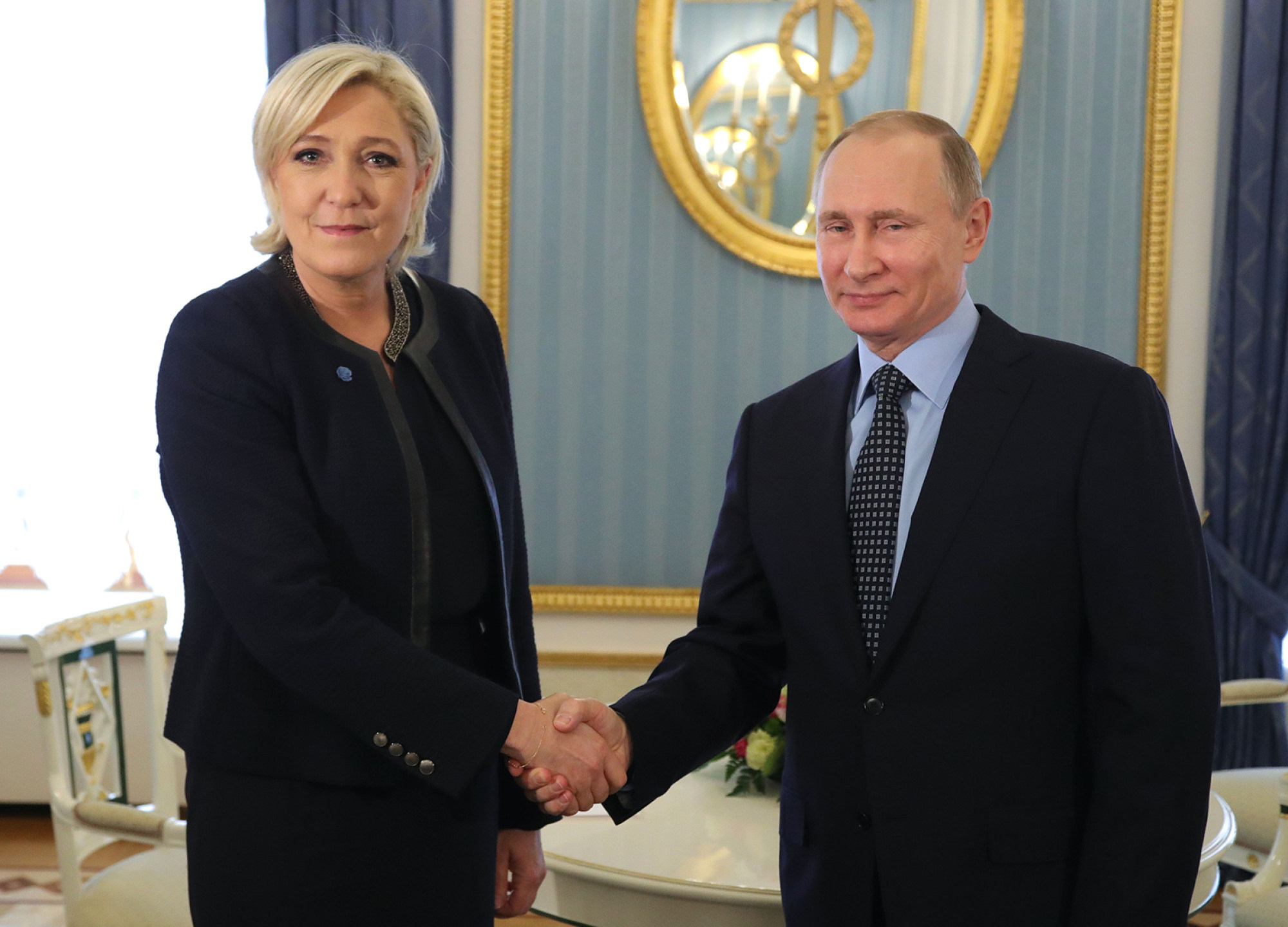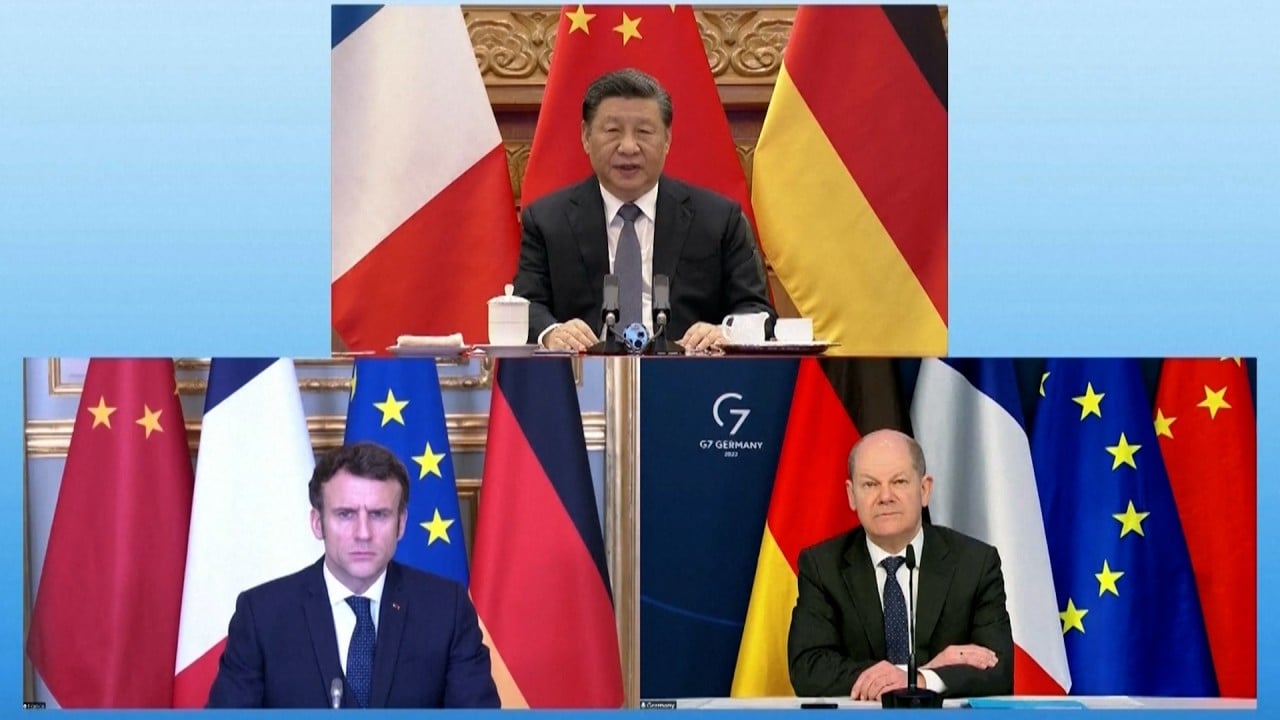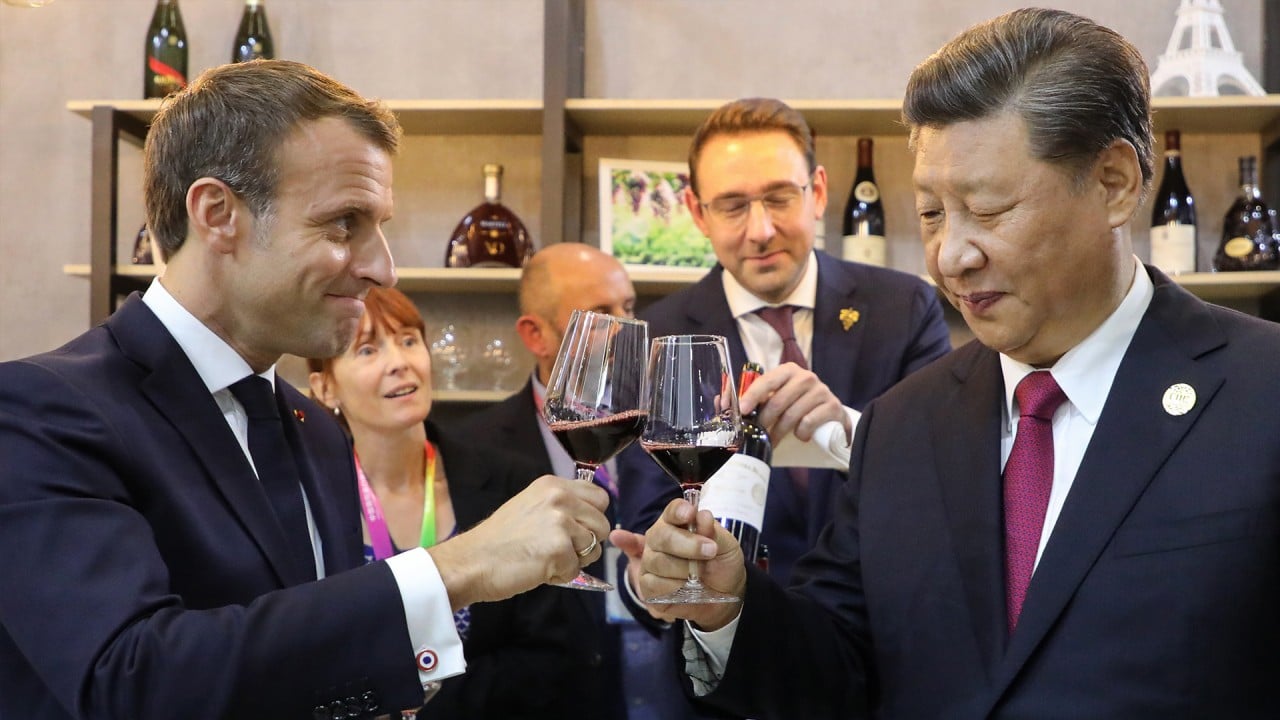
What the French election’s Le Pen v Macron showdown could mean for China policy
- A second term for the French president could see him take a tougher approach to Beijing, but some business figures would welcome a pro-market winner
- The far-right candidate is more of a wild card but could have a major impact on the European Union as a whole
One of the bloc’s pre-eminent foreign policy powers, France will decide on April 24 on whether to hand incumbent Emmanuel Macron another five-year term, or whether far-right candidate Marine Le Pen deserves a stint in the Elysée.
China has barely featured in a campaign that has been dominated by the Russian invasion of Ukraine, the ongoing cost-of-living crisis and the continued fallout from the Covid-19 pandemic.
Macron, meanwhile, has championed a multifaceted EU policy towards China geared around the idea of “strategic autonomy” – a concept often encouraged by Chinese leaders.
With EU-China relations at arguably their lowest ever point, analysts are divided on what either scenario might mean for Beijing.
“Le Pen’s election would carry a lot of disrupting consequences that would in one way or another affect France-China relations. A lot of unpredictability and instability, particularly about France’s relations with the EU,” said Jean-Pierre Cabestan, a professor of political science at Hong Kong Baptist University.
France’s Le Pen ordered to undergo psychiatric tests over tweets
Since the last election, Le Pen has abandoned some of her more controversial foreign policy positions in an effort to court the mainstream.
Faced with unprecedented Russian aggression, Le Pen has been forced to address ties with Moscow too.
“Until the triggering of the war in Ukraine, I actually believed that it was in the interest of France to have closer ties with Russia again, and … prevent Russia from building such a solid alliance with China,” Le Pen said at a press conference last week, adding that her views on the Kremlin had recently changed.
But observers remain unconvinced: Le Pen used the same press conference to call for a “strategic rapprochement between Nato and Russia” as soon as “the Russian-Ukrainian war is over and has been settled by a peace treaty”.

Cabestan said: “If by any chance Le Pen was elected, relations with China and Russia would improve as she is in favour of leaving Nato and keeps criticising the United States and the EU.”
Observers in China dispute this. A Le Pen victory would add tension to already fraught EU-China ties, said Wang Yiwei, a European affairs specialist with Renmin University in Beijing.
“Europe needs a strong leader to pursue strategic autonomy,” Wang said, pointing to the fact that Macron – along with former German chancellor Angela Merkel – was a key supporter of the Comprehensive Agreement on Investment, a long-negotiated pact that has been stalled since last May following tit-for-tat sanctions over Beijing’s alleged human rights abuses against the Uygurs in Xinjiang.
“EU-China relations need to restart. A stand-off for more than two years is a lose-lose for both sides. We need to turn the page. We need certainty. A second term for Macron will be good for everybody,” Wang added.
Macron has support from the business sector too.
According to consultancy firm TMF group, Chinese foreign direct investment in France was worth around €8.5 billion (US$9.2 billion) in 2020, contributing to over 50,000 jobs.
France’s trade with China rose by 10.3 per cent in the first quarter of the year, including a 2.2 per cent increase in exports.
France’s Macron steps up fight against Le Pen in far-right bastion
Macron has looked to expand these ties, even as – on other fronts – he has sought to moderate France’s exposure to certain Chinese companies.
Last year it joined a number of other Western companies in imposing restrictions on the use of Huawei equipment in its 5G network, but in February this year it signed six agreements with China.
Frédéric Grare, a senior policy fellow at the European Council on Foreign Relations, described this dual approach as a “peaceful rebalancing” and said Macron was better at protecting French interests than his predecessors.
“Macron is clearly part of the movement which sees Europe increasingly protecting itself against China. But that does not mean there can be no cooperation whatsoever.
“It is why you see the restrictions on Chinese technologies as well as cooperation in other aspects of the relationship. There is no contradiction,” Gare added.

Others see a second Macron term as being more confrontational, in line with the wider deterioration in EU-China ties.
Philippe Le Corre, a senior fellow at the Harvard Kennedy School, expected Macron would continue to mirror the EU’s policies towards China.
“Macron will continue to promote an EU approach to China. You saw what happened at the last EU-China summit. European leaders are not happy with China’s ‘rock-solid relationship’ with Russia – a country that has been savagely attacking Ukraine,” he said.
He also expected Macron to be more vocal about China if re-elected. “France no longer avoids subjects that displease Beijing and expresses itself more openly than a few years ago,” Bondaz said.
But, as France heads into the most keenly watched election finale in generations, observers are sceptical as to whether the China debate will become an issue.
“Traditionally, foreign policy doesn’t play much of a national election beyond the slogan of French greatness. This time it does play a role, not because of China but of Ukraine. The China question will be asked at some point, but we are not there yet,” Gare said.



